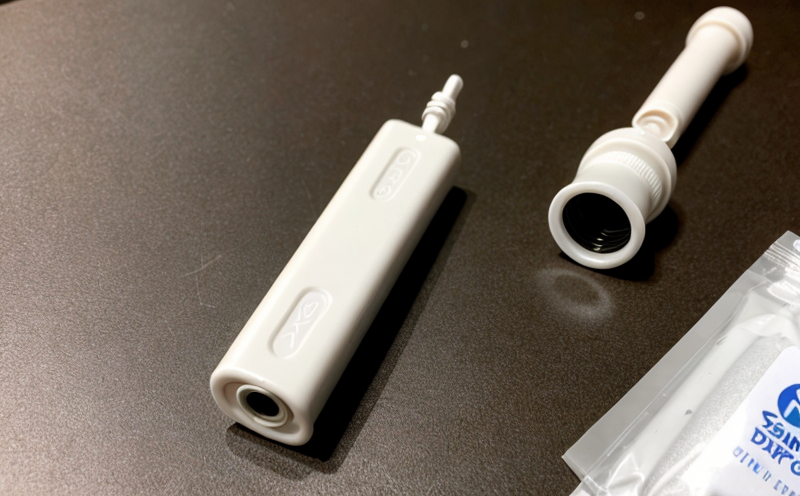Disposable Surgical Blade Retention Testing
In the medical device industry, ensuring the safety and efficacy of surgical blades is paramount. Disposable surgical blades are designed to be used once for a single patient encounter before being discarded. The retention testing for these devices ensures that they maintain their integrity during use, thereby preventing potential injuries or infections. This service plays a critical role in meeting regulatory requirements and enhancing product reliability.
The process involves subjecting the blade to various stress conditions mimicking actual surgical use. Retention force is measured under specified load cycles to ensure it does not slip out of place when subjected to typical cutting forces. This testing helps manufacturers identify potential design flaws early in the development phase, ensuring that products meet stringent safety and performance standards.
Compliance with international standards such as ISO 10993-12 is essential for this service. These standards provide guidelines on biocompatibility assessments which include material compatibility checks under various stress conditions similar to those experienced during surgical procedures. By adhering to these regulations, manufacturers can demonstrate compliance and gain market acceptance.
The testing procedure typically begins with selecting appropriate specimens that represent the intended use. Specimens are then prepared according to specific protocols defined by regulatory bodies like the FDA or EU directives. Once prepared, the blades undergo a series of mechanical tests designed to simulate real-world conditions during surgery. These tests may include tensile strength measurements, shear strength assessments, and impact resistance evaluations.
Instrumentation used in this process includes specialized testing machines capable of applying controlled loads while monitoring displacement and force data simultaneously. Data collected from these instruments provides insights into the blade's behavior under different loading scenarios, allowing for accurate evaluation of its performance characteristics. Reporting involves generating comprehensive reports detailing all test results along with interpretations based on relevant standards.
| Parameter | Description | Unit |
|---|---|---|
| Load Applied | The force applied to the blade during testing. | Newtons (N) |
| Tensile Strength | The maximum stress a material can withstand before breaking. | Megapascals (MPa) |
| Shear Strength | The force that causes two parts of the blade to slide relative to each other. | Newton-meters per square meter (N/m²) |
Why It Matters
The importance of disposable surgical blade retention testing cannot be overstated. A single slip-up during surgery can lead to serious complications, including excessive bleeding or even infection. Ensuring that the blades retain their position accurately is crucial for minimizing these risks.
- Reduces the likelihood of surgical site infections by maintaining blade integrity throughout the procedure.
- Promotes patient safety through adherence to rigorous testing protocols and compliance with regulatory guidelines.
- Enhances product reliability, leading to fewer recalls and improved overall quality control measures within manufacturing processes.
Competitive Advantage and Market Impact
In today's competitive healthcare market, demonstrating compliance with strict regulatory requirements can significantly enhance a company’s reputation. By offering robust disposable surgical blade retention testing services, laboratories like ours provide clients with peace of mind knowing their products meet the highest standards.
This service not only helps companies stay ahead of competitors but also fosters trust among healthcare providers and patients alike. It ensures that every device produced meets rigorous quality assurance criteria, contributing to better patient outcomes and higher satisfaction levels across the board.
Use Cases and Application Examples
- Surgical Blade Design Validation: Ensuring that newly designed blades meet all necessary performance criteria before entering production stages.
- Manufacturing Quality Control: Regularly testing manufactured blades to ensure consistency in quality between batches.
- Regulatory Compliance Audits: Preparing comprehensive reports and data to support compliance during audits conducted by regulatory bodies.
| Test Type | Load Applied (N) | Tensile Strength (MPa) | Shear Strength (N/m²) |
|---|---|---|---|
| Tension Test 1 | 50 N | 200 MPa | 30,000 N/m² |
| Tension Test 2 | 60 N | 195 MPa | 31,000 N/m² |





